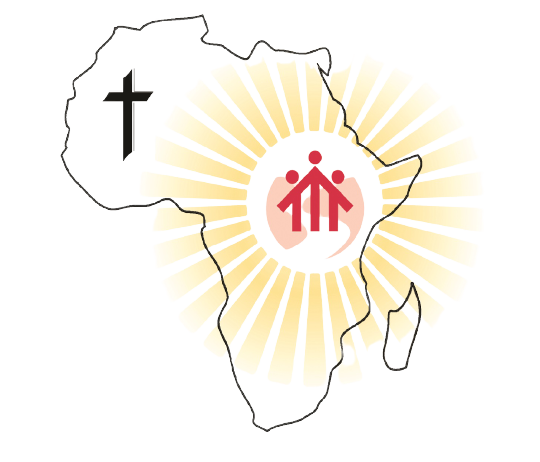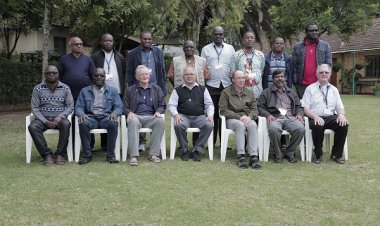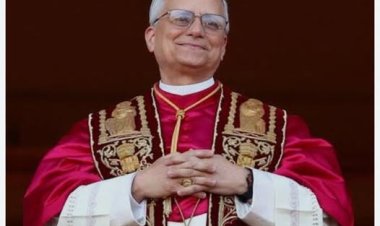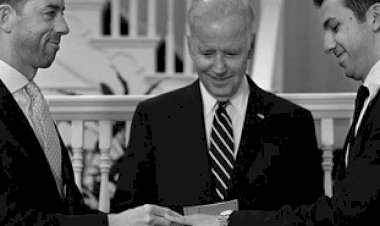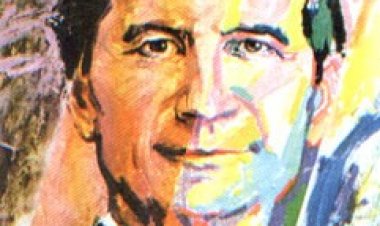St. Joseph: Model of Fatherhood and Faithfulness
A reflection on the occasion of the feast and the year of St Joe - Fr. Shenan J. Bouquet
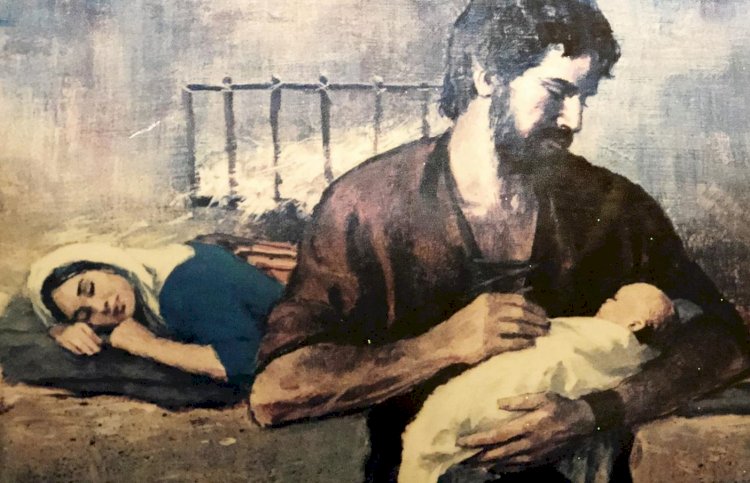
St. Joseph: Model of Fatherhood and Faithfulness - Fr. Shenan J. Bouquet - March 15th, 2021
God, in His wisdom, chose to reveal Himself to us in Divine Revelation as Father.
Theologians have ruminated at great length upon God’s Fatherhood, exploring what this mystery reveals about God’s nature and attributes.
However, there is also much to learn by turning the question on its head, and instead asking what Scripture’s revelation of the first person of the Holy Trinity as Father, says about the nature and dignity of earthly fathers.
Surely, God’s choice to call Himself Father is both a great compliment to the dignity of earthly fathers, as well as a great challenge.
If God is our Father, then earthly fathers only live up to their own vocations to the extent that they imitate and reflect God’s own fatherhood, which is their model.
Such a task may seem impossible – as indeed it is.
A father is called to love his children, but no father can possibly love with the infinite love that God has for His children.
A father is called to be strong, to selflessly support and lift up his children; but no father can be as unwavering, as firm, as strong, as the Rock spoken of in the Scriptures. (“The LORD is my rock, and my fortress, and my deliverer / my God, my strength, in whom I will trust / my buckler, and the horn of my salvation, and my high tower.” Psalm 18)
Fortunately, the Church, in her wisdom, has given us the ideal embodiment of God’s fatherhood in a human person – in the man whom Christ Himself, the God Incarnate, would have called “father”, i.e., St Joseph.
St Joseph was appointed by God to be the guardian and protector of Our Lord Jesus Christ. He is also our model of fatherhood and faithfulness. “Joseph of Nazareth is a particular revelation of the dignity of human fatherhood!” Pope St. John Paul II said in a 1981 homily on the Solemnity of St. Joseph. “The family rests on the dignity of human fatherhood – on the responsibility of the man, husband and father, as also on his work. Joseph of Nazareth bears witness to this for us.”
As we celebrate the Solemnity of St Joseph, we are also celebrating the Year of St Joseph.
It is a very good time to meditate on the mystery of St Joseph’s fatherhood, and how the gift of St Joseph can help us in our battle to create a Culture of Life and Family.
The Need for Fathers in Times of Turmoil
Some have argued that, just as the greatest source of spiritual confusion in our contemporary culture is the abandonment of belief and trust in God our Father, so too the greatest source of social confusion is the crisis in human fatherhood.
Tragically, many fathers today do not take seriously the weight of the responsibility that is placed on their shoulders. In far too many cases, fathers turn their backs on their wives and children in order to pursue their own aims and pleasures. Even when they have not literally abandoned their children, leaving them fatherless, they have been spiritually absent, failing to provide the love, guidance, support, and example that children need for their spiritual and personal development.
The same is also true about the crisis within our Church. There is pressure from the world for the Church to change fundamental doctrine related to life and family. These doctrines are the bulwark standing between the agents of death and so many unborn children and other vulnerable people. They are also the best means of protecting the family against the degradations of the sexual revolution, which have torn so many families apart, and sown so much heartache.
At such a time, we need strong fathers – priests and bishops – who are willing to courageously defend their spiritual children. Instead, many priests and bishops have betrayed their spiritual fatherhood, abandoning their role as teachers and making compromises with the world, even (and it is terrible to admit) diabolically abusing the children entrusted to their care.
Now, more than ever, we need men who are willing to step up to the plate, and to imitate the fatherhood of St Joseph. Fathers must look to St Joseph to learn how they can serve their wives and children with the quiet, hidden, self-effacing strength with which this great saint – the Universal Patron of the Catholic Church – served Mary and Jesus. Priests and bishops, similarly, must imitate St Joseph, looking to him for an example of service, humility, obedience, and holiness.
St Joseph’s Hiddenness
The chaos in our culture is one reason why Pope Francis has designated this year as the Year of St Joseph. In an apostolic letter marking the 150th anniversary of the declaration of St Joseph as Universal Patron of the Church, Pope Francis noted that the year of the pandemic has exposed the value of the hidden and often unappreciated workers who quietly serve us every day.
“Each of us can discover in Joseph – the man who goes unnoticed, a daily, discreet and hidden presence – an intercessor, a support and a guide in times of trouble,” wrote the Holy Father.
“St Joseph reminds us that those who appear hidden or in the shadows can play an incomparable role in the history of salvation. A word of recognition and of gratitude is due to them all.”
It is this hiddenness of St Joseph that is, paradoxically, his most conspicuous attribute.
St Joseph’s entire life was committed to quiet, hidden, unassuming service. This should provide great hope to fathers everywhere, who wonder whether they are “making a difference” by quietly serving their families in seemingly unremarkable ways: going to work every day, playing with or teaching their children, and simply being a quiet, steady, protective presence within the home. The answer – so long as they are doing their work in a spirit of humble obedience to God’s will – is “yes”! A thousand times yes.
Our culture idolizes the rich, the wealthy, and the powerful. This, however, is not God’s way. It may be true that we, too, need our politicians, businessmen, entertainers, and all the rest. And yet, the message of all the Scriptures, and especially the Gospels, is that salvation is not found among the princes of the world. “Salvation,” Christ says to the woman at the well in the Gospel of John, “is from the Jews.” (John 4:22) And who were the Jews? A small, hidden, unassuming, and largely inconsequential people in the ancient world.
The greatest saint of all time – Mary, the Mother of God – was a peasant woman, chosen for the incomparably great task of bearing the incarnate God. And the second greatest saint – her husband and Christ’s foster-father – was a humble carpenter, who is not recorded as saying a single word in all of the Scriptures. No great deeds, and no great words. And yet, as Pope Francis notes, “After Mary, the Mother of God, no saint is mentioned more frequently in the papal magisterium than Joseph, her spouse.”
St Joseph and the Culture of Life and Family
For those of us working to create a Culture of Life and Family, St Joseph has always held particular significance. St Joseph’s example and intercession are desperately needed in each of the three great prongs of this battle: the fight to protect the unborn child, the sick and dying, and the family.
St Joseph is an emblem of how to lovingly and trustingly respond to new life in the womb.
When St Joseph learned that Mary was pregnant, he did not understand. But when the angel appeared to him in a dream, and urged him to take Mary as his wife, he immediately obeyed, accepting the child in her womb as his own.
“Fatherhood is responsibility for life: for the life first conceived in the woman’s womb and then born, in order that a new man, who is blood of your blood and flesh of your flesh, may be revealed,” says Pope John Paul II in that homily on the Solemnity of St Joseph. “God who says: ‘do not abandon the woman, your wife’, says at the same time: ‘receive the life conceived in her’! Just as he said to Joseph of Nazareth, although Joseph was not the blood father of him who was conceived of the Holy Spirit in the Virgin Mary.”
“Often in life, things happen whose meaning we do not understand,” wrote Pope Francis in Patris Corde. “Our first reaction is frequently one of disappointment and rebellion. Joseph set aside his own ideas in order to accept the course of events and, mysterious as they seemed, to embrace them, take responsibility for them and make them part of his own history.”
If all fathers responded to new life with the same spirit of courage and acceptance as St Joseph did, pledging to be there for their child’s mother no matter what, most abortions would end overnight.
St Joseph is also the patron saint of a happy death. The Scriptures are silent on the death of St Joseph. And yet, his absence during the passion suggests that he had died before Christ faced the cross. If that is so, then St Joseph must have died with Christ and the Virgin Mary at his bedside, praying for him. Surely, there can be no happier a death than that!
In our day, there is an assault on the dignity of human life in its final stages. Driven by a misguided compassion, and by a diabolical misunderstanding of human freedom, pro-euthanasia and assisted suicide campaigners are agitating for the “right” for patients to kill themselves, or for doctors to kill their patients. St Joseph shows us another way. He shows us there is a dignity and beauty in suffering and death, but only if death is viewed in the light of eternal truths and if Christ and His Mother are welcomed at the bedside of the dying.
Finally, St Joseph was the head of the Holy Family. A rock within the home in Nazareth, he watched over and protected the family. His dignified fatherhood reveals to us the great dignity of all families.
“Inserted directly in the mystery of the Incarnation, the Family of Nazareth has its own special mystery,” wrote Pope John Paul II in the 1989 apostolic exhortation Redemptoris Custos. “And in this mystery, as in the Incarnation, one finds a true fatherhood: the human form of the family of the Son of God, a true human family, formed by the divine mystery. In this family, Joseph is the father: his fatherhood is not one that derives from begetting offspring; but neither is it an ‘apparent’ or merely ‘substitute’ fatherhood. Rather, it is one that fully shares in authentic human fatherhood and the mission of a father in the family.”
If fathers are to help their families withstand the attacks that are so ubiquitous in our time, they need the example of St Joseph, so that they might become the strong leaders who are capable of leading their family towards holiness, modelling authentic love and service.
Let us invoke St Joseph’s intercession:
“St Joseph, Guardian of human life and its inherent dignity from conception to natural death,
pray for us.”
